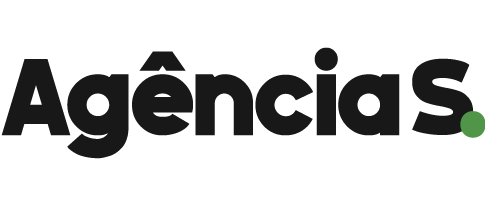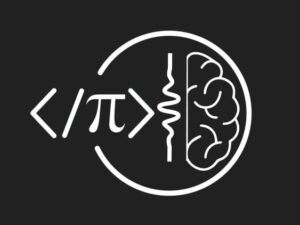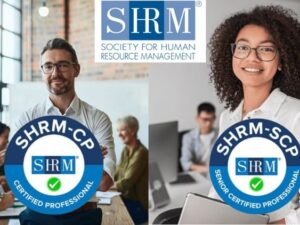Certificate Course in Drug Regulatory Affairs (DRA)
- Descrição
- Currículo
- FAQ
- Revisões
If you find the Drug Regulatory Affairs field challenging, well, in that case, this is the best course for you.
The pharmaceutical industry is one of the extremely regulated industries, with several government regulations to protect public health. Therefore, the important target of the pharmaceutical industry is to develop a Drug product passing the regulatory requirements. On the other hand, regulation of drug development, manufacturing, marketing, and sales involves paradoxical objectives. It must ensure that safe and effective pharmaceutical formulations reach the public quickly while concurrently protecting against ineffective/unsafe/harmful therapies. Drug Regulatory authorities ensure the safety, efficacy, and quality of all pharmaceuticals that are in circulation in their country. The major challenge for the regulatory expert is to make sure that the pharmaceuticals are developed as per regulatory requirements of that country which involves the assessment of critical factors during the Drug product development. The United States Food and Drug Administration (USFDA) is one of the most regulated agencies wherein the Drug submission process is very strenuous and complicated. Understanding the crucial points in the Drug registration procedure will have a considerable impact on the accomplishment of its submission strategy. This course focuses on the following points that could make a Drug registration procedure smooth without any significant delays/failures,
• Basic Understanding and Terminologies related to DRA,
• Need and essential qualities of Regulatory Affairs Professional,
• DRA objectives,
• The USFDA regulatory requirements and Drug Approval Procedure,
• History of US Drug Law and Regulations,
• Investigational New Drug Application (INDA),
• New Drug Application (NDA),
• Abbreviated New Drug Application (ANDA),
• Supplemental New Drug Application (SNDA),
• Orange Book,
• Drug Master File (DMF),
• Common Technical Document (CTD),
• Electronic Common Technical Document (eCTD),
• Regulatory Strategy,
• Good Manufacturing Practices (GMP) and Current Good Manufacturing Practices (cGMP),
• Clinical Research,
• Biologics License Application (BLA) and Purple Book,
• Important Literature Search Websites for DRA Professional,
• Many more…
There will be several downloadable documents so that you can follow along with them whenever you need them.
This course contains Commonly Asked Questions that will help you while preparing for DRA interviews.
Last but not the least, this course also contains a bonus course entitled “Meeting etiquettes” which will help you to shape your career in which the points that must be taken into consideration while attending/conducting meetings are covered.
In this course, more than 30 informative videos are included and are designed in an easily digestible format and going to take you through step by step approach to understand Drug Regulatory Affairs and relevant activities. This course will help you to develop the ability to conduct regulatory intelligence and develop a regulatory strategic plan.
I believe “Quality improvement is a continuous and lifetime process“. Upon completion of this course, you will be a whole different professional with improved DRA skills and knowledge which will help you to garner more respect from your team members, managers, clients, or anyone with whom you are communicating/interacting.
-
1IntroductionVídeo Aula
-
2Basic Understanding And TerminologiesVídeo Aula
-
3Why Regulatory Affairs?Vídeo Aula
-
4Types of Companies Hiring RA ProfessionalsVídeo Aula
-
5RA ObjectivesVídeo Aula
-
6Qualities of RA ProfessionalVídeo Aula
-
7Historical background of US Drug Law and RegulationsVídeo Aula
-
8Major Roles of Regulatory Affairs in Pharmaceutical IndustryVídeo Aula
-
9DRA-IntroductionQuestionário
-
10Drug Approval Process and Clinical TrialVídeo Aula
-
11New Drug Development-Preclinical StepsVídeo Aula
-
12Process of Investigational New Drug Application (INDA)Vídeo Aula
-
13New Drug Application (NDA) ProcessVídeo Aula
-
14Abbreviated New Drug Application (ANDA)-1Vídeo Aula
-
15Abbreviated New Drug Application (ANDA)-2Vídeo Aula
-
16Abbreviated New Drug Application (ANDA)-3Vídeo Aula
-
17Generic ProductsVídeo Aula
-
18Innovator-Generics-Common and Differentiating Points-1Vídeo Aula
-
19Innovator-Generics-Common and Differentiating Points-2Vídeo Aula
-
20NDA Vs ANDAVídeo Aula
-
21Orange bookVídeo Aula
-
22Orange Book-Therapeutic Equivalence Evaluations Codes_1Vídeo Aula
-
23Orange Book-Therapeutic Equivalence Evaluations Codes_2Vídeo Aula
-
24Drug Master File (DMF)-1Vídeo Aula
-
25Drug Master File (DMF)-2Vídeo Aula
-
26DMF Review ProcessVídeo Aula
-
27Application Vs DMFsVídeo Aula
-
28Common Technical Document (CTD)Vídeo Aula
-
29ASEAN-CTD Vs ICH-CTDVídeo Aula
-
30Electronic Common Technical Document (eCTD)Vídeo Aula
-
31Paper CTD Vs eCTDVídeo Aula
-
32Regulatory Strategy-1Vídeo Aula
-
33Regulatory Strategy-2Vídeo Aula
-
34Good Manufacturing Practices-IntroductionVídeo Aula
-
35GMP Vs cGMPVídeo Aula
-
36Clinical ResearchVídeo Aula
-
37Good Manufacturing Practices-GMP PrinciplesVídeo Aula
-
38Biologics License Application (BLA) and Purple BookVídeo Aula
-
39Bonus MaterialTexto
-
40Drug Approval ProcessQuestionário












